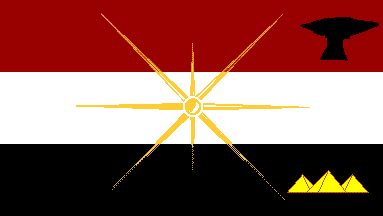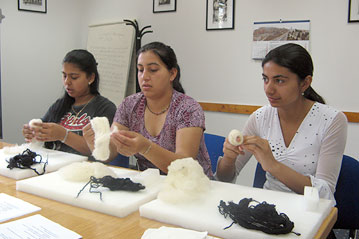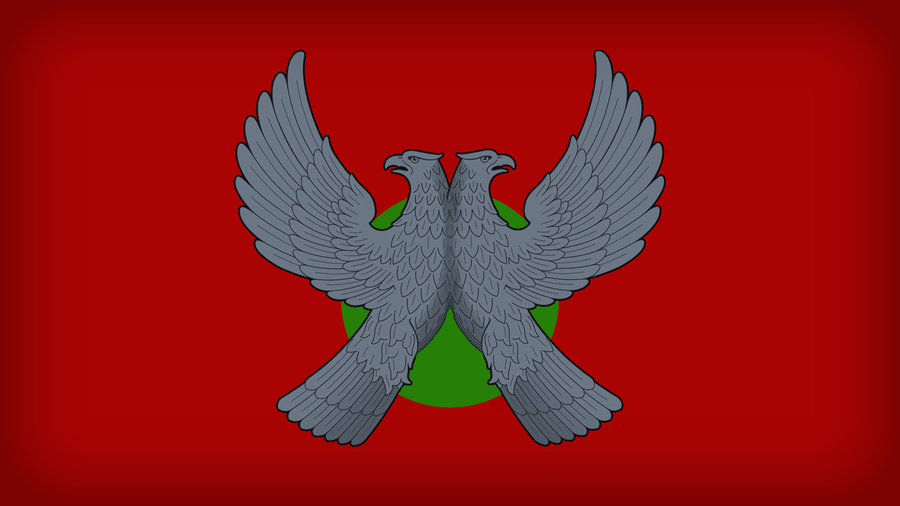Egyptians (Balkans)
Balkan Egyptians, and Kosovo Egyptians, (Albanian Egjiptian, Evgjitë or short Jevg, Serbo-Croatian Egipćani or Đupci / Египћани or Ђупци, macedonian Египќани or Ѓупци, Bulgarian Агупти ), form a majority Albanian-speaking part of the Roma minority in the Balkans. Smaller groups also live in Albania and the Bulgarian Rhodopes.
Origin and Name
The total Roma minority in Kosovo is distributed - going from self- understanding of a indeterminate in size and importance of some of their relatives from - in three categories: " Roma ", " Ashkali " and " Egyptian". In the language of international organizations, they are grouped under the symbol " RAE " and assigned to the overall European minority. General With the growth of nationalist tendencies in the former Yugoslavia took the demarcation need to be along ethnic lines. Since Roma - popularly majority: "Gypsy " - subject to general exclusion by the respective majority population, particularly in the Albanian Kosovo were confronted with a strong ethnic nationalism and aggressive persecution and expulsion, also grew within the RAE community delineation readiness and self- profiling needs than non-Roma.
As a differentiator to other groups using the representative of a " Egyptian " autonomy different fictional origin myths, by which they were or had come as part of a migration to the time of Alexander the Great " from the Nile " on the Balkans descendants of Egyptians. The Egyptian origin myth was but since the end of the Middle Ages a part of the self-definition of the Roma minority. It is the scientific study of the novel in the late 18th century revealed the real origin of the Roma from the Indian subcontinent, a finding that has since been adopted by the minority itself. With "Egyptians " Use the speakers an old common European name for Roma, as she still lives in " gypsies ", " Gitans " or " gypsies " and is also preserved in the Balkans, and return to Egypt myth. Reputable historiographical evidence of the mythical origin there has never been and are not.
In 1990, in Ohrid (Macedonia), an association of the "Egyptians". A little later, also in 1990, groups of Kosovo Egyptians were founded in Prishtina and Metohia. From representatives of the Roma community, these start-ups were ( eg the well-known writer Ali Krasniqi ) considered as "Divisions " and "invention" of an ethnic group. Others justified the transition from ascription " Roma " on the attribution "Egyptians" with improved access to "jobs for my family" and "more rights".
Dissemination
Most Balkan Egyptians live in Kosovo, to exist alongside smaller groups in Serbia, Macedonia, Montenegro, Bulgaria, Greece and Albania.
The Yugoslav census of 1991 allowed for the first time Egyptians as an ethnic self-designation, after this had been requested in a 1990 petition from citizens of Macedonia and Kosovo to the Federal Assembly of the SFR Yugoslavia and to the parliaments of the Republics of Macedonia and Serbia.
6,355 persons declared in 1991 in Serbia, "Egyptians " ( Egipćani ), of which 5,881 in Kosovo, 3,307 persons in Macedonia and 35 in Montenegro. One internal, unverifiable statement of the Association of Egyptian According approximately 87,000 people in Kosovo, the group should assign contrast.
In Macedonia, arranged themselves in the census 2002 3.713 people in the group of " Egyptians" to.
At the 2002 census in Serbia ( excluding Kosovo ) is 814 persons declared as "Egyptians", most of them in Belgrade ( 597) and Novi Sad ( 102). In Central Serbia and Montenegro also some from Kosovo fled to live " Egyptian " families.
Like other members of the Roma minority also fled "Egyptians" during and after the Kosovo War in 1999 from Kosovo or were driven out of there because they were contrary to the self-constitution as a separate ethnic minority still seen as Roma and rejected.










